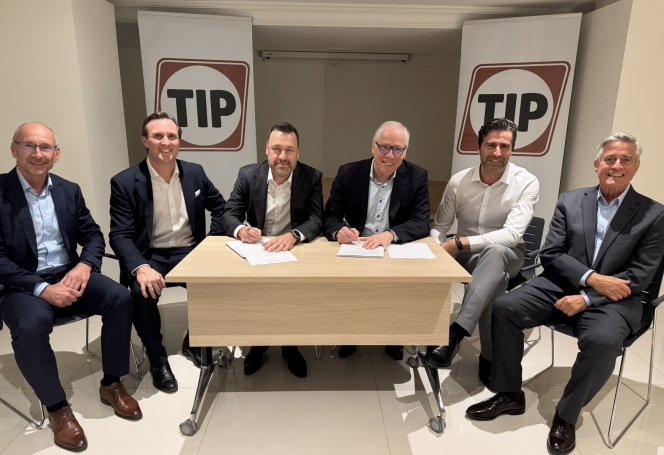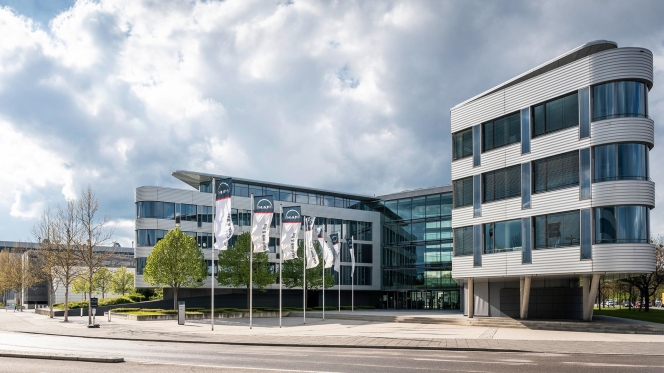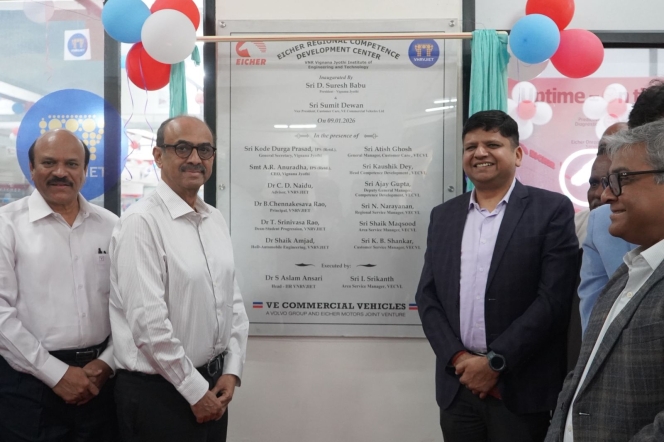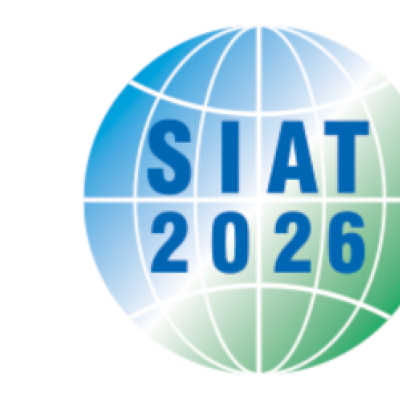Ashok Leyland Delivers LNG Truck; Posts Good Q2 FY24 Performance
- By MT Bureau
- November 10, 2023

Ashok Leyland has delivered an LNG powered haulage truck –AVTR 1922 – to Mahanagar Gas Limited in Hosur (Tamil Nadu) marking yet another significant development in sustainable mobility in India.
The LNG powertrain of the truck was developed in-house and is BS VI Stage II compliant. The truck, the AVTR 1922 is based on the modular AVTR platform and shares a high degree of commonality with Ashok Leyland's existing diesel truck range. The result of this is an amount of familiarity in terms of ease of service.
Stating that Ashok Leyland’s steadfast commitment revolves around the dynamic needs of customers in the ever-evolving world of sustainable transportation, Sanjeev Kumar, President – MHCV, Ashok Leyland, mentioned that innovations in alternate energy space will not only provide eco-conscious solutions, it will also ensure long term profitability for our esteemed customers.
Of the opinion that a local supply chain must gear up for progress in the field of alternative fuels, Dheeraj Hinduja, Executive Chairman, Ashok Leyland, referred to the strong performance of the company in the second quarter of FY2023-24.
Emphasising that the robust all-round performance of Ashok Leyland during the respective quarter exemplifies its technological and cost leadership, he expressed, “While International business globally is challenged owing to the conflicts across the globe, we are intensifying our expansion strategy in our focus markets of Middle East, Africa and Asia. The Company continues to build its capabilities in alternative energy and shall be soon coming up with some exciting products and solutions.”
Confident that the rest of the two quarters of the FY2023-24 will bring further growth on the back of strong macroeconomic factors, Hinduja informed that their MHCV, ICV and bus segments have recorded good performance.
For Q2 FY2023-24, Ashok Leyland has reported revenues of INR 96.38 billion vis-a-vis INR 82.66 billion in Q2 FY2022-23, marking a growth of 17 percent. Profit After Tax (PAT) of INR 5.61 billion for the quarter grew 181 percent over same period last year.
The CV maker’s domestic MHCV volume at 29,947 units grew by 18 percent as compared to the Q2 FY2022-23 volume. LCV volumes during Q2 FY2023-24 were 16998 units – almost the same as Q2 FY2022-23 (17,040 numbers). Export volumes for the quarter (MHCV & LCV) were 2901 units, four-per cent higher despite socio-political challenges across the globe.
Witnessing good movement in the MHCV space, Ashok Leyland saw a significant increase in its bus market share making us the Number 1 bus manufacturer in India.
EBITDA (Earnings Before Interest, Tax, Depreciation and Amortisation) for Q2 FY2023-24 was INR 10.80 billion (11.2 percent) as compared to INR 5.37 billion (6.5 percent) in Q2 FY2022-23. Net Debt at the end of the quarter stood at INR 11.39 billion with a Debt Equity at 0.1 time.
All other businesses of Ashok Leyland posted good growth in the current quarter. The company expanded its MHCV range by launching new products in tipper, tractor and MAV categories. The focus on expansion of distribution network continued with further addition of 47 touch points in the quarter – especially in the Northern and Eastern parts of the country.
The Board of Directors of Ashok Leyland in their meeting held today, have approved an investment of INR 12.00 billion in Switch Mobility as equity through its holding company Optare PLC, UK. The funds infused will be used for capital expenditure, R&D and meeting operational requirements both in UK and India. The funds will be infused over the next few months after necessary statutory approvals in one or more tranches.
Switch Group of Companies (Switch Mobility Ltd - UK and Switch Mobility Automotive Ltd- India) house the Electric Mobility initiative of Ashok Leyland with a focus on e-buses and e-LCVs.
Over the last few years, Switch India has had major success in garnering orders from State Transport Undertakings. As on date Switch in India and UK has over 800 buses plying successfully and has an order book of over 1200 buses.
Switch India had a successful launch of India’s only Double Decker e-Bus last year. In September 2023, the Ashok Leyland subsidiary launched its state-of-the-art e-LCVs. The company has signed MoUs of over 13000 vehicles for its much-awaited e-LCVs which it will start delivering from the fourth quarter of the current fiscal.
“Electric Vehicles especially in buses and light trucks have a very bright future as Governments and private customers are driving the green agenda. We are very happy with the progress made by Switch, and we will continue to invest on building its capabilities. We are confident that Switch will grow further in the European markets with the launch in 2024 of our new E1 12 m bus developed specifically for the European market. Our portfolio of electric buses will cover value and premium segments meeting all price points for many global markets,” Hinduja commented.
MAN Truck & Bus And TIP Group Ink EUR 160 Million Framework Agreement For 1,800 CVs
- By MT Bureau
- January 20, 2026

MAN Truck & Bus and TIP Group have entered into a framework agreement for the delivery of up to 600 commercial vehicles annually over the next three years. The contract includes up to 1,800 units across all weight classes, ranging from 7.5 to 42 tonnes and covers operations in 18 European countries. The agreement, which includes both diesel and battery-electric trucks, has a total order value of up to EUR 160 million.
The diesel vehicles supplied will feature the PowerLion drivetrain, incorporating the D30 engine and TipMatic-14 transmission. According to the automaker, these aerodynamic updates reduce fuel consumption and CO2 emissions by up to 5 percent compared to previous models. In the electric segment, the contract includes the eTGL, eTGX and eTGS models. Depending on battery configuration, these vehicles offer claimed ranges between 310 km and 830 km.
The electric heavy-duty models are equipped with Combined Charging System (CCS) connections supporting up to 375 kW. From mid-2026, these models will support megawatt charging up to 750 kW. MAN produces both drive types on a single assembly line at its Munich plant to manage market demand and production costs.
TIP Group, which manages a fleet of over 90,000 assets, will utilise MAN service contracts to manage maintenance and repairs across its European network. These contracts provide fixed monthly rates to ensure cost transparency and vehicle uptime for rental customers.
Friedrich Baumann, Executive Board Member for Sales & Customer Solutions, MAN Truck & Bus, said, “With the new framework agreement, MAN Truck & Bus and TIP Group are sending a strong signal for the future of freight transport. We are pleased to accompany TIP as an important partner on the path to sustainable logistics – with efficient diesel trucks and innovative battery-electric vehicles. This agreement underscores the trust in our products and services and shows how we are jointly driving the transformation of the industry forward.”
Arjen Kraaij, CEO, TIP Group, said, “Supporting customers through the transition means offering the right solutions at the right time. By working closely with partners like MAN, we can expand our fleet with both highly efficient diesel trucks and electric trucks, giving operators practical choices that balance performance, cost efficiency and sustainability.”
Gulf Oil Lubricants Inks Strategic Partnerships With ACE, Ammann India And XCMG
- By MT Bureau
- January 19, 2026
Gulf Oil Lubricants India has established strategic alliances with three construction equipment manufacturers – ACE (Action Construction Equipment), Ammann India and XCMG. These agreements are intended to expand the company’s presence in the infrastructure segment by providing equipment-specific lubricants for the Indian market.
As part of the collaboration with ACE, Gulf has added new products to the ACE Genuine Oil range, covering machinery such as cranes, backhoe loaders, motor graders and tractors. For Ammann India, which holds a 60 percent market share in asphalt mixing plants, Gulf will serve as the official partner for its entire equipment range. This includes the development of formulations for future machinery. Additionally, Gulf will launch branded lubricants for XCMG to support its range of construction equipment within India.
Alongside these alliances, Gulf has introduced a range of specialised products including fire-resistant hydraulic oil, zinc-free hydraulic oil and CEV V diesel engine oil. These formulations are engineered to meet the requirements of new-generation equipment while improving uptime and reducing the total cost of ownership for contractors.
The company currently manages over 50 OEM associations across the automotive, industrial, and construction sectors. These partnerships are a component of Gulf’s strategy to provide technical services and product selection tailored to Indian operating environments.
Ravi Chawla, Managing Director & CEO, Gulf Oil Lubricants India, said, “Infrastructure has been a strategic focus area for Gulf for over 15 years, and these partnerships mark a significant step forward in strengthening our presence in this growing sector. By working closely with leading OEMs like ACE, Ammann, and XCMG, among others, we are able to deliver application-specific, future-ready lubricant solutions for new generation equipments that help customers improve equipment reliability, reduce downtime, and optimise total cost of ownership. We firmly believe that long-term value is built through strong, enduring partnerships.”
MAN Truck & Bus Plots EUR 1 Billion Investment In Germany By 2030
- By MT Bureau
- January 17, 2026

German commercial vehicle major MAN Truck & Bus has reached an agreement with employee representatives and the IG Metall union on its MAN2030+ programme. The initiative is designed to reduce costs by approximately EUR 900 million by 2028 while funding investments of almost EUR 1 billion in the company’s German locations by 2030.
The programme includes the development of vehicle generations based on the TRATON Modular System (TMS). Production and R&D investments will be made in Germany and Eastern Europe, where the group plans to establish a battery factory to support the transition to electric heavy-goods vehicles and buses.
The agreement secures the jobs of employees at MAN Truck & Bus in Germany until at least 2035, with a potential extension to 2040 based on sales and earnings performance. All German production sites will be retained. The company plans to adjust its workforce by 2,300 jobs over the next decade through natural fluctuation and demographic trends, avoiding redundancies or severance schemes.
Alexander Vlaskamp, CEO, MAN, said, “Following intensive negotiations, we have now reached agreement with our employee representatives on the implementation of key cornerstones of the MAN2030+ program. The plan secures MAN’s competitiveness and guarantees our customers a broad product portfolio as a full liner, which forms the basis for the company’s future success. This will enable us to secure the jobs of our current employees also in the future. With our continued high level of investment in Germany, we are fulfilling our industrial policy responsibilities. We will now consistently implement the long-term MAN2030+ program in order to counteract intensifying competition, changing market conditions and major regulatory risks at an early stage."
The EUR 900 million cost reduction will be achieved through savings in material and overhead costs, as well as sales performance improvements. The company has ruled out wage cuts and committed to continuing profit-sharing payments and above-tariff benefits.
Karina Schnur, Chairwoman of the General Works Council, MAN Truck & Bus, said, “The discussions were not easy, but they were always respectful and constructive, and from the perspective of co-determination and IG Metall, they have now resulted in the best possible compromise for our employees and the company. The agreement sends a very strong signal regarding the security, stability, and future prospects of our employees. With this agreement, we are securing the jobs of our colleagues at MAN until at least the end of 2035. And we are doing so without interfering with collectively agreed benefits. In addition, we were able to agree on profit sharing for employees and the payment of benefits above the collective agreement level – which means that MAN will remain an attractive company for future generations. Furthermore, we are securing the long-term preservation of our German locations. At the same time, we are creating the freedom to continue investing significantly in our German locations and the future of MAN.”
The programme also prioritises vocational training, with MAN committing to hire trainees amounting to at least 2 percent of the permanent workforce annually. By the mid-2030s, the company expects to employ approximately 13,000 staff across its German operations.
Volvo–Eicher Establishes Regional Competency Development Centre At VNR VJIET
- By MT Bureau
- January 13, 2026

In a strategic commitment to cultivating advanced technical expertise in South India, Eicher (VE Commercial Vehicles Limited) has established a long-term Regional Competency Development Centre at VNR Vignana Jyothi Institute of Engineering & Technology (VNR VJIET) in Hyderabad. This significant investment underscores Eicher's dedication to fostering industry-ready talent and enhancing the practical skills of its own workforce and network. The centre, inaugurated for an initial 10-year term, represents a core component of Eicher's vision for collaborative innovation and sustainable skill development within the automotive sector.
The newly inaugurated facility is equipped with a comprehensive range of operational vehicles, including diesel and electric models, alongside specialised diagnostic equipment and cut models of vital automotive systems. This infrastructure is designed to provide immersive, hands-on learning for Eicher employees and dealer partners from the Telangana and Andhra Pradesh regions. Furthermore, it creates a vital bridge to academia, offering students and faculty from key engineering disciplines direct exposure to current industry technologies and real-world automotive systems within their academic environment.
This initiative is fundamentally driven by Eicher’s objective to support sustained knowledge advancement and create a robust pipeline of skilled professionals. By enabling structured training on modern vehicle technologies, the partnership actively contributes to shaping the future of the automotive industry. It reflects Eicher's proactive approach to integrating industry practice with engineering education, thereby strengthening the ecosystem that supplies the next generation of engineers and technicians.
D Suresh Babu Garu, President, Vignana Jyothi, said, “Being selected by a global automotive leader such as Volvo–Eicher to host a Regional Competency Development Centre is a strong validation of VNR VJIET’s focus on industry-aligned education. This collaboration strengthens our commitment to providing students with the best facilities, real-world exposure and future-ready skills that meet national and global standards.”
Sumit Diwan, National Head – Customer Care, VE Commercial Vehicles Limited, said, “This Centre reflects our long-term approach to capability building and talent development. By investing in advanced infrastructure at VNR VJIET and training students alongside our workforce, we are creating a strong pipeline of skilled engineers equipped for evolving automotive and electric mobility technologies. We plan on hiring students from Automobile Engineering (AE) department and encourage greater participation of female students in the recruitment process.”







Comments (0)
ADD COMMENT